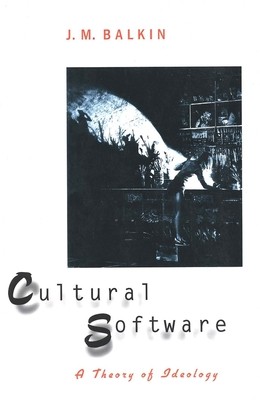
- We will send in 10–14 business days.
- Author: J M Balkin
- Publisher: Yale University Press
- ISBN-10: 0300084501
- ISBN-13: 9780300084504
- Format: 15.5 x 23.1 x 1 cm, softcover
- Language: English
- SAVE -10% with code: EXTRA
Reviews
Description
In this book J. M. Balkin offers a strikingly original theory of cultural evolution, a theory that explains shared understandings, disagreement, and diversity within cultures. Drawing on many fields of study-including anthropology, evolutionary theory, cognitive science, linguistics, sociology, political theory, philosophy, social psychology, and law-the author explores how cultures grow and spread, how shared understandings arise, and how people of different cultures can understand and evaluate each other's views. Cultural evolution occurs through the transmission of cultural information and know-how-"cultural software"-in human minds, Balkin says. Individuals embody cultural software and spread it to others through communication and social learning. Ideology, the author contends, is neither a special nor a pathological form of thought but an ordinary product of the evolution of cultural software. Because cultural understanding is a patchwork of older imperfect tools that are continually adapted to solve new problems, human understanding is partly adequate and partly inadequate to the pursuit of justice. Balkin presents numerous examples that illuminate the sources of ideological effects and their contributions to injustice. He also enters the current debate over multiculturalism, applying his theory to problems of mutual understanding between people who hold different worldviews. He argues that cultural understanding presupposes transcendent ideals and shows how both ideological analysis of others and ideological self-criticism are possible.
EXTRA 10 % discount with code: EXTRA
The promotion ends in 5d.00:47:22
The discount code is valid when purchasing from 10 €. Discounts do not stack.
- Author: J M Balkin
- Publisher: Yale University Press
- ISBN-10: 0300084501
- ISBN-13: 9780300084504
- Format: 15.5 x 23.1 x 1 cm, softcover
- Language: English English
In this book J. M. Balkin offers a strikingly original theory of cultural evolution, a theory that explains shared understandings, disagreement, and diversity within cultures. Drawing on many fields of study-including anthropology, evolutionary theory, cognitive science, linguistics, sociology, political theory, philosophy, social psychology, and law-the author explores how cultures grow and spread, how shared understandings arise, and how people of different cultures can understand and evaluate each other's views. Cultural evolution occurs through the transmission of cultural information and know-how-"cultural software"-in human minds, Balkin says. Individuals embody cultural software and spread it to others through communication and social learning. Ideology, the author contends, is neither a special nor a pathological form of thought but an ordinary product of the evolution of cultural software. Because cultural understanding is a patchwork of older imperfect tools that are continually adapted to solve new problems, human understanding is partly adequate and partly inadequate to the pursuit of justice. Balkin presents numerous examples that illuminate the sources of ideological effects and their contributions to injustice. He also enters the current debate over multiculturalism, applying his theory to problems of mutual understanding between people who hold different worldviews. He argues that cultural understanding presupposes transcendent ideals and shows how both ideological analysis of others and ideological self-criticism are possible.


Reviews